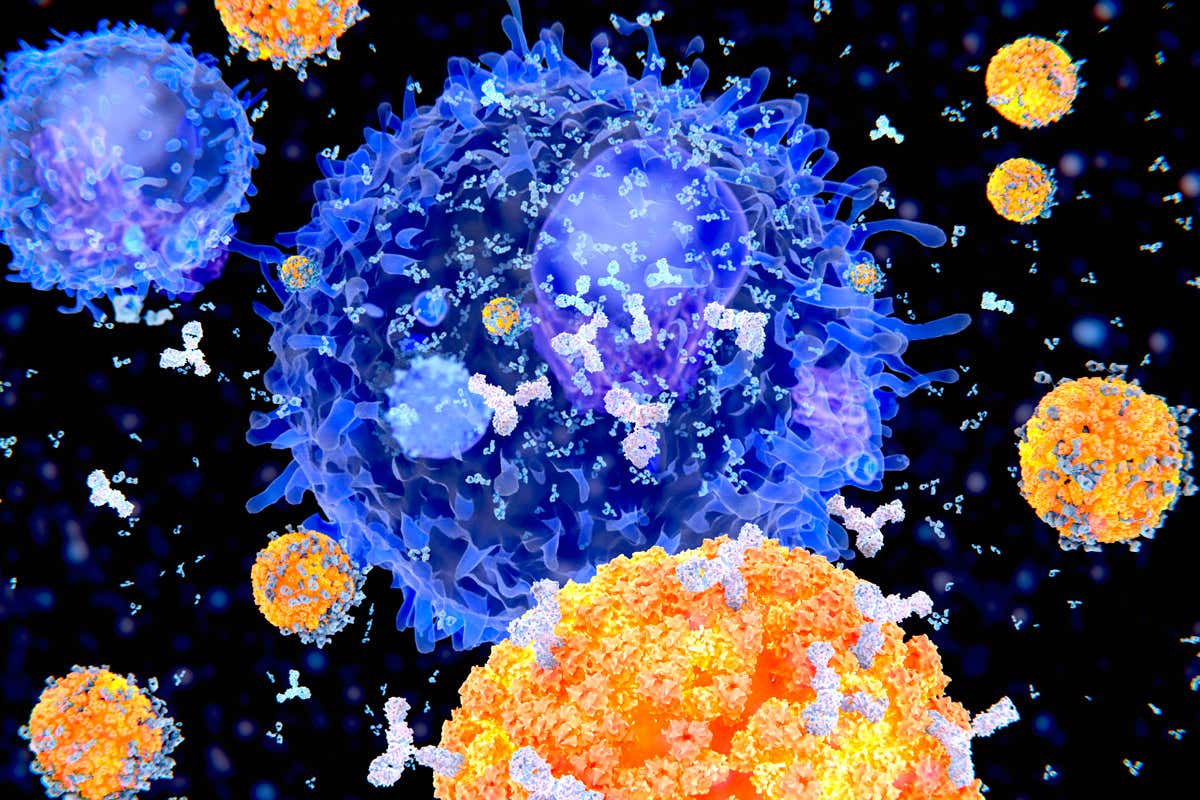
Antibodies are tiny proteins in your body that play a huge role in keeping you healthy. Ever wondered how your body fights off germs and infections? Antibodies are the superheroes behind the scenes. They recognize and latch onto invaders like bacteria and viruses, marking them for destruction. Your immune system then swoops in to eliminate these threats. These proteins are so specialized that each one targets a specific invader. Think of them as your body's personalized defense team. From vaccines to natural immunity, antibodies are essential. Ready to learn more about these microscopic warriors? Let's dive into 25 fascinating facts about antibodies!
What Are Antibodies?
Antibodies are fascinating proteins that play a crucial role in our immune system. They help our bodies fight off infections and keep us healthy. Here are some intriguing facts about antibodies that will give you a deeper understanding of these tiny defenders.
- Antibodies are also known as immunoglobulins.
- They are produced by B cells, a type of white blood cell.
- Each antibody is specific to a particular antigen, which is a substance that triggers an immune response.
- There are five main classes of antibodies: IgA, IgD, IgE, IgG, and IgM.
- IgG is the most common antibody in the blood and other body fluids.
- IgA is found in mucous membranes, such as the lining of the respiratory and digestive tracts.
- IgE is involved in allergic reactions and helps protect against parasitic infections.
- IgM is the first antibody produced in response to an infection.
- IgD is present in small amounts in the blood and is involved in the activation of B cells.
- Antibodies can neutralize toxins produced by bacteria and viruses.
How Antibodies Work
Understanding how antibodies function can shed light on their importance in our immune system. They are like tiny soldiers, each designed to target and neutralize specific invaders.
- Antibodies bind to antigens on the surface of pathogens, marking them for destruction by other immune cells.
- They can also neutralize pathogens directly by blocking their ability to enter cells.
- Antibodies can activate the complement system, a group of proteins that helps destroy pathogens.
- They can enhance phagocytosis, a process where immune cells engulf and digest pathogens.
- Some antibodies can cross the placenta, providing immunity to the fetus during pregnancy.
- Vaccines work by stimulating the production of antibodies against specific pathogens.
- Monoclonal antibodies are laboratory-made molecules that can mimic the immune system's ability to fight off harmful pathogens.
- Antibodies can be used in diagnostic tests to detect the presence of specific antigens.
- They are also used in treatments for various diseases, including cancer and autoimmune disorders.
- The structure of an antibody consists of two heavy chains and two light chains, forming a Y-shaped molecule.
Interesting Facts About Antibodies
Antibodies are not only vital for our health but also have some surprising and interesting aspects. Here are a few more facts that highlight their uniqueness.
- Each person can produce billions of different antibodies, each specific to a different antigen.
- The diversity of antibodies is generated through a process called V(D)J recombination, which rearranges gene segments in B cells.
- Antibodies can form complexes with antigens, which can be cleared from the body by the immune system.
- Some animals, like sharks and camels, produce unique types of antibodies that are being studied for potential medical applications.
- Antibody levels can be measured in the blood to diagnose and monitor various diseases.
Antibodies are truly remarkable components of our immune system, constantly working to protect us from a myriad of threats. Understanding these facts can help appreciate the complexity and efficiency of our body's defense mechanisms.
The Power of Antibodies
Antibodies are truly fascinating. They play a crucial role in our immune system, protecting us from harmful invaders like bacteria and viruses. These tiny proteins can remember past infections, making future responses quicker and more effective. Vaccines work by training our antibodies to recognize and fight specific pathogens without causing illness.
Monoclonal antibodies, engineered in labs, have revolutionized treatments for various diseases, including cancers and autoimmune disorders. They target specific cells, minimizing damage to healthy tissues.
Understanding antibodies helps us appreciate the complexity and efficiency of our immune system. It also highlights the importance of vaccines and medical advancements in keeping us healthy.
Next time you hear about antibodies, you'll know they're not just scientific jargon but vital defenders of our health. Stay curious, and keep learning about the wonders of the human body!
Was this page helpful?
Our commitment to delivering trustworthy and engaging content is at the heart of what we do. Each fact on our site is contributed by real users like you, bringing a wealth of diverse insights and information. To ensure the highest standards of accuracy and reliability, our dedicated editors meticulously review each submission. This process guarantees that the facts we share are not only fascinating but also credible. Trust in our commitment to quality and authenticity as you explore and learn with us.
